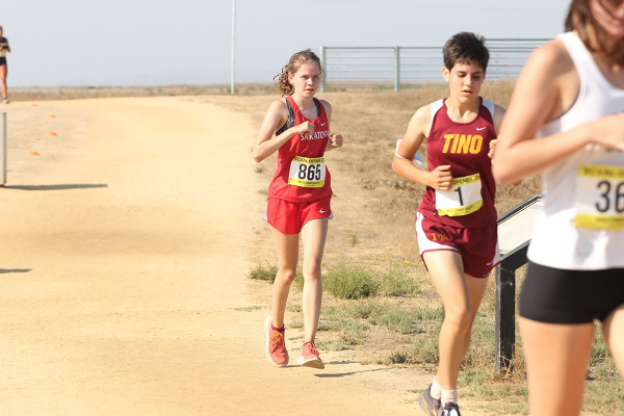The outside stench hit senior Amoli Vanavadiya before she even checked the Air Quality Index (AQI) for that afternoon on Aug. 27: 155. Despite looking forward to a fun day of running with the rest of the girls’ cross country team, she knew she would have to step up as team captain and cancel practice indefinitely until the smoke cleared up.
“We’ve already had to cancel two practices because of the smoke,” Vanavadiya said. “We’re lucky we didn’t need to cancel more so far, especially with important meets coming up.”
All of the fall sports — with the exception of girls’ volleyball — are outdoor sports. Although wildfires are common in California, the poor air quality has forced coaches and student-athletes alike to begin thinking about alternative, pandemic-safe indoor workouts.
According to athletics director Rick Ellis, practices and competitions are only allowed to proceed if the AQI is below 149.
“Everything’s at a local level in terms of air quality,” Ellis said. “There’s no SCVAL nor CCS policy, so the standard for air quality safety varies depending on schools. However, we constantly track the news and communicate with coaches and other teams about competitions and rigorous practices [when concerns do arise].”
Since many sports, including cross country, require high-intensity workouts and strenuous physical activity, captains like Vanavadiya are conscious of the effects of smoke on athlete performance. Coaches have stressed that protecting student health has always taken priority over additional preparation for upcoming meets, and this is especially true as competition season picks up in full swing in October.
“It depends on what the AQI is, but on some days, during past cross country seasons, the air quality can be terrible, and even being outside makes peoples’ throats dry,” Vanavadiya said. “We have to make a decision not to run because the sport can be a high-intensity workout.”
Because poor air quality can exacerbate lung hazards already posed by a COVID-19 afflicted season, Ellis also emphasizes the importance of both getting vaccinated and downloading air quality monitoring apps such as PurpleAir or AirNow.
“Communication with coaches and other players is also huge,” he said. “It’s important that everyone’s on the same page when it comes to holding or canceling practices and competitions. If someone also has pre-existing respiratory issues like asthma, it’s crucial that they communicate with the coach so that we can keep people safe.”
While current fire hazards haven’t impacted the area in the past few weeks, Vanavadiya is already thinking of utilizing treadmills and strength workouts in the weight room for potential indoor practices if additional hazards occur in later months.
“As a captain, I really do value getting all our miles in, but my team’s lungs are far more important,” Vanavadiya said.


























